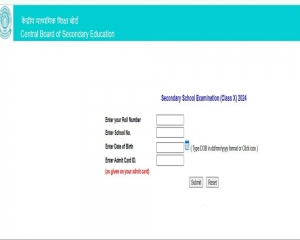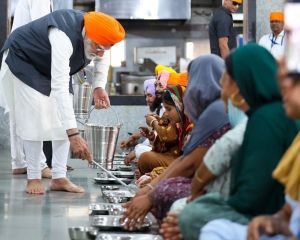In the last one year of the NDA Government, India’s energy diplomacy has received a major boost. During his multiple foreign visits, Prime Minister Narendra Modi has ensured that energy security receives its due attention. He signed several energy deals at bilateral and multilateral level, signifying that here onwards energy security will be accorded greater attention in India’s foreign policy in the coming years of the NDA rule.
In the first aspect of its energy diplomacy, the Government has reached out to its immediate neighbours through bilateral and regional mechanisms. At the bilateral level, the country has significantly enhanced energy engagement with its smaller neighbours. During the PM’s recent trip to Bangladesh, the two countries agreed to cooperate on a broad range of energy issues covering different sectors.
At a regional level, the first major step in energy integration was the signing of the SAARC energy agreement on electricity cooperation in November 2014. The underlying idea behind such agreements is two-fold. Firstly, to help out smaller South Asian neighbours overcome their energy crisis at home. Second, by bringing South Asian countries under a common regional energy framework, the Indian Government is trying to set stage for ushering greater political stability and economic integration in South Asia.
The second aspect of India’s energy diplomacy is renewing older relationships. Thus one can see India renewing its old ties with France and Canada, who had earlier boycotted export of nuclear technology and essential materials to the country. As per the joint statement, Canada has agreed to supply 3,000 metric tonnes of Uranium to India. Similarly, France has also agreed to supply components to help India build nuclear reactors.
The third aspect of India’s energy diplomacy is to cultivate new relationships with willing partners. The underlying idea here is to expand and diversify the base of energy sources, to the extent possible. In case of natural gas imports, sensing that it is becoming difficult to source natural gas from Iran due to prevailing US sanctions and the fact that lNG imports from United States are embroiled with legislative conditions and clauses, the Indian government consciously explored energy opportunities elsewhere.
For example, during PM Modi’s visit to Australia, both countries agreed to cooperate in natural gas trade. According to a Business Standard report dated February 10, 2015, the lNG imports from Australia enjoy a comparative price advantage over similar gas imports from Qatar. Also unlike lNG imports from United States, the Australian lNG does not come with any conditions and riders.
The Indian Government also adopted a similar strategy in case of oil sector. As per several media reports, sensing the instability associated with political and security issues in the West Asian countries, the Government made efforts to expand the volumes of oil imports from African and South American countries.
On nuclear energy front, India has expressed willingness to work with countries like China, Kazakhstan and Australia. In the renewable energy sector, India has joined hands with United States and China in expanding the utilisation of clean energy technologies. In the coal sector too, the Government has adopted a more practical policy. Realising that reducing the contribution of coal in India’s energy mix would take longer time than originally anticipated, the Government has decided to build more efficient coal fired power plants with Japanese cooperation.
It would be pertinent for the Indian Government to sustain the momentum it has infused in its energy diplomacy in the past one year. During the rest of its term, the Government must focus on consolidating the gains it has made. Amidst enthusiasm in cultivating new energy partnerships with different countries, the Government must also make substantial efforts in strengthening ongoing energy relationships with its traditional suppliers in West Asia and the Gulf States.
For example, taking the case of Iran, energy expert and Research Fellow at Institute for Defence Studies and Analyses, New Delhi, Shebonti Ray Dadwal argues in her article that the Indian Government must keep Iran engaged to ensure its energy interests.
Similarly, steps must be undertaken to speed up the process of negotiations on the TAPI project. As widely reported in the media, during his recent trip to Turkmenistan, PM Modi made a strong pitch for increasing Indian investments in Turkmenistan and strengthening political cooperation between the two countries. In the coming years, it must be ensured that these commitments are followed up with action.
(The writer is a Research Scholar at National Institute of Advanced Studies, Bangalore)

























